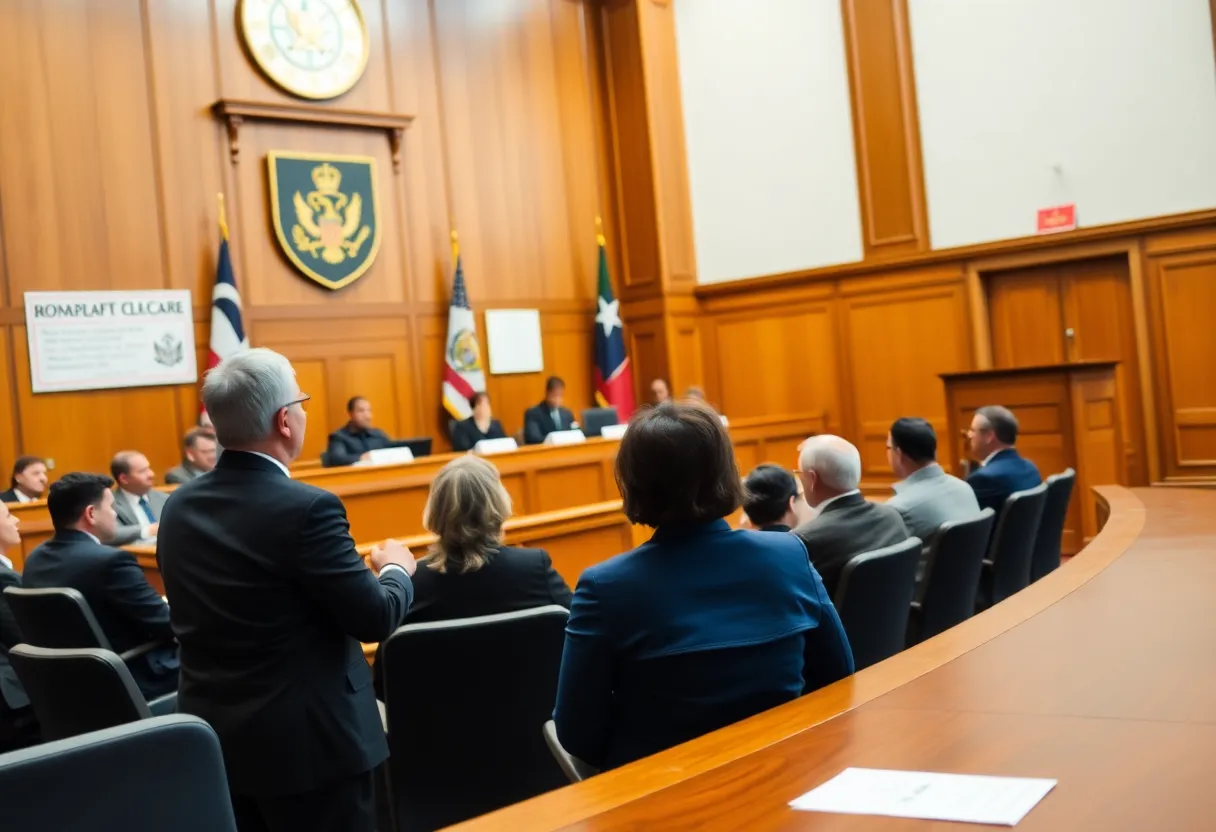News Summary
Two nonprofit organizations, AVAC and JDN, have filed a lawsuit against the Trump administration over a freeze on U.S. foreign aid. This action comes as a response to the administration’s pause on new foreign assistance, which threatens crucial health services and humanitarian programs. The plaintiffs argue the freeze is illegal and violates the separation of powers, impacting the livelihoods of many relying on these funds. The outcome of this lawsuit could have significant implications for international aid and the delivery of essential services across the globe.
Nonprofits Take on Trump’s Foreign Aid Freeze in Court
In a bold move, two nonprofit organizations, the AIDS Vaccine Advocacy Coalition (AVAC) and the Journalism Development Network (JDN), have filed a lawsuit against the Trump administration, challenging the recent freeze on U.S. foreign aid. This lawsuit comes as a reaction to the administration’s decision to pause new foreign assistance and halt work on ongoing projects, a decision that has many in the nonprofit sector deeply concerned.
What’s Going On?
Both AVAC and JDN are no strangers to receiving funding from the U.S. Agency for International Development (USAID) and the State Department. These organizations rely heavily on federal funds to support their missions, which are crucial during these challenging times. By freezing these funds, the Trump administration is putting a brake on programs that many depend on for their livelihoods and health services.
Legal Grounds for the Lawsuit
The plaintiffs argue that the administration’s actions are not just questionable but actually “illegal and unconscionable.” They contend that this freeze violates the principle of separation of powers, as it withholds foreign aid funds that were previously allocated by Congress. The lawsuit specifically points out that there isn’t any legal authority allowing the President or his administration to unilaterally impose such a comprehensive freeze on appropriated foreign assistance.
Who’s on the Hot Seat?
Named in the lawsuit are several key figures including the State Department, USAID, Secretary of State Marco Rubio, and, of course, President Donald Trump. This high-profile legal action is indicative of the serious nature of the implications surrounding the freeze, especially since it has a significant impact on life-saving programs that many people around the world rely on.
The Aftermath of the Freeze
The lawsuit highlights how this sudden freeze is more than just a bureaucratic inconvenience. It has **endangered the livelihoods of countless employees** and jeopardized ongoing aid projects critical for delivering essential health services and humanitarian aid. The claims made by the nonprofits showcase the gravity of the situation, asserting that these humanitarian programs are paramount in delivering life-saving health and aid services.
What’s the Administration’s Stance?
The Trump administration argues that organizations like USAID are wasting taxpayers’ money on various overseas programs. This statement suggests a broader critique of how foreign aid is managed and allocated, reflecting a long-standing debate over government spending and international assistance. However, this viewpoint runs into direct conflict with the plaintiffs’ argument that cutting off funds serves no constructive purpose and only hampers vital work.
Seeking Change
The lawsuit aims to overturn an executive order issued by President Trump that paused foreign aid for a three-month review, along with other directives from the State Department and USAID that followed. But that’s not all that is happening in the legal landscape. In parallel, there’s another lawsuit filed by unions representing USAID employees. This all unfolds under the backdrop of a federal judge recently issuing a restraining order related to the status of these employees on administrative leave, pausing the administration’s plan to withdraw nearly all of the agency’s overseas workers.
Broader Implications
Alongside this legal challenge, Colorado’s Attorney General Phil Weiser joined forces with 21 other states in a separate lawsuit against the Trump administration for cutting research funding from the National Institutes of Health (NIH). This also reflects a growing concern regarding the impact of these funding cuts on research and the economy throughout the states.
The Road Ahead
As these lawsuits unfold, they shine a light on the critical nature of funding for humanitarian aid and international assistance. With the stakes so high, it’s evident that the outcome could have lasting implications for not just the organizations involved, but for countless individuals across the globe who rely on these services for their health and well-being. The ongoing discourse emphasizes the importance of holding the government accountable and ensuring that funds appropriated by Congress are utilized effectively and ethically.
Deeper Dive: News & Info About This Topic
- The New York Times
- Wikipedia: Foreign Aid
- CBS News
- Google Search: Trump administration lawsuit
- Colorado Sun
- Google Scholar: Trump lawsuits
- Reuters
- Encyclopedia Britannica: USAID
- CNN
- Google News: Trump foreign aid freeze
- ABC News







